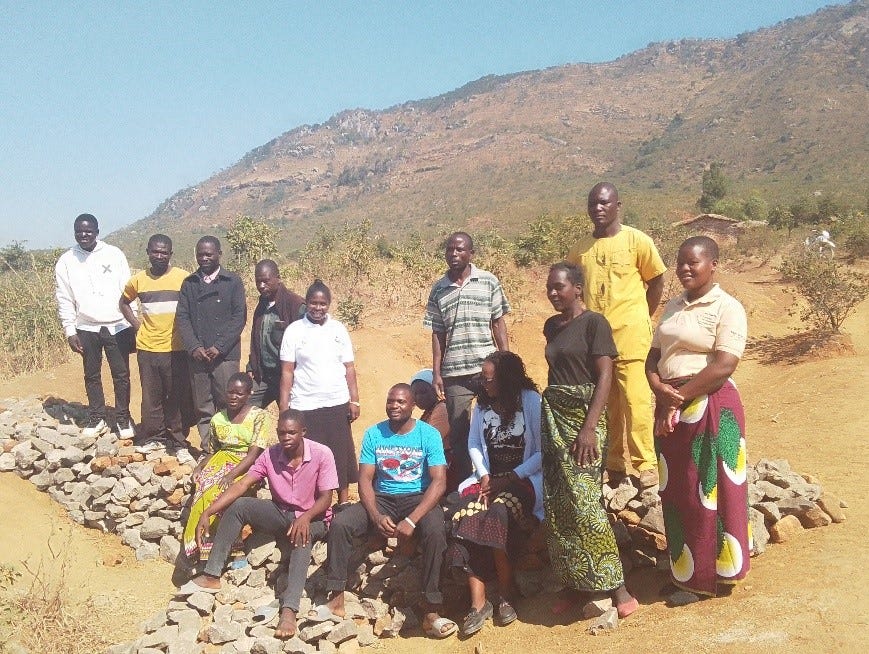Climate Smart Project Boosts Livelihoods in Dedza
The project has led to increased crop yields compared to previous years. Communities are encouraged to make manure, improving soil fertility.
DEDZA, Malawi— As Malawi grapples with environmental challenges, the Dedza district council is implementing a "climate smart project" under public works programs to preserve vegetation and improve agriculture across the district, writes Edward Chikwanda.
During a media tour on Tuesday, Africa-brief learned that the Public Works Program allows communities to boost agriculture and participate in natural tree regeneration.
Participants are paid for their involvement in the project.
District Project Facilitator Jacaster Khoriyo said the project has improved agriculture in the district, enabling families to purchase farm inputs and construct checking dams, swales, and stone bunds to prevent soil erosion.
"The impact is very good in the district because most families are capable of purchasing basic needs and participating in village loan saving groups," Khoriyo said.
The project has led to increased crop yields compared to previous years. Communities are encouraged to make manure, improving soil fertility.
They are also provided with tools such as hoes, wheelbarrows, and rakes.
The total number of beneficiaries is 22,635 across all ten Extension Planning Areas (EPAs).
Jabulani Madise, Agriculture Extension Development Coordinator for Kaphuka EPA, noted significant yield improvements due to increased land productivity.
"Kaphuka EPA farmers, covering 3,846 hectares of land, are engaged in ridge alignment, swale construction, and gully reclamation using stone bunds," Madise said.
"This has helped to contain water, especially in wetlands, which farmers use for irrigation."
Patrick Matsimbe and Emily Kazama, local farmers, testified to the project's positive impact on their families.
"By the time we started gully reclamation, making swales, and producing manure, we began harvesting more crops," they said.
"With the money we're getting from the project, we can send our children to school and buy basic necessities."
The Climate Smart Project, supported by the World Bank and implemented by the National Local Government Finance Committee (NLGFC), has significantly improved livelihoods in Dedza district by helping communities achieve a higher standard of living.



